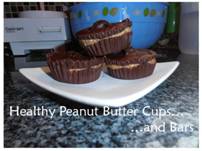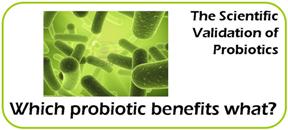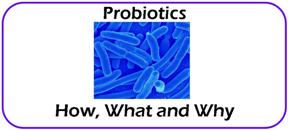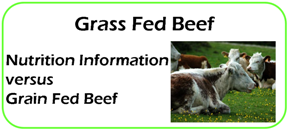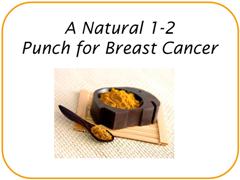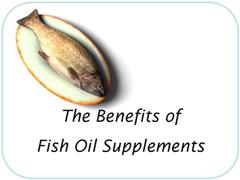|
Scientific Validation of Probiotic SupplementsProbiotic supplements have been studied for their effects on metabolic syndrome, liver injury, inflammatory bowel diseases, autism, colorectal cancer, enteritis, immune modulation, allergies, atopic dermatitis and eczema, and more. The gut flora (the combination of “friendly” and “unfriendly” bacteria in the digestive tract) can affect the immune response to incoming pathogens; and favorably changing the composition of gut flora can reduce the inflammation associated with immune system activation. Luckily, which probiotics benefit specific health ailments has been the subject of intense scientific research. Here we review some of the benefits of probiotics with the strongest scientific support. Take this information to make an educated and individualized decision on your next purchase of probiotic supplements. You can read more about
how probiotics work and how to choose a probiotic here.
Ulcerative Colitis and Inflammatory Bowel DisordersProbiotics - E. coli Nissle, Lactobacillus casei, Lactobacillus plantarum, Lactobacillus acidophilus, Lactobacillus delbrueckii subsp. bulgaricus, Bifidobacterium longum, Bifidobacterium breve, Bifidobacterium infantis, Streptococcus salivarius subsp. Thermophilus, Streptococcus faecalis, Clostridium butyricum, Bacillus mesentericus, Lactobacillus rhamnosus, Lactobacillus reuteri, Bifidobacterium breve strain Yakult, Bifidobacterium bifidum strain Yakult, and VSL #3 (a brand-name probiotic supplement blend of Streptococcus thermophilus, Bifidobacterium breve, Bifidobacterium longum, Bifidobacterium infantis, Lactobacillus acidophilus, Lactobacillus plantarum, Lactobacillus paracasei, and Lactobacillus delbrueckii subsp. Bulgaricus). Results - Improved the cellular and inflammatory profiles of patients suffering from ulcerative colitis, and irritable bowel disease, including Crohn’s disease. Ulcerative colitis patients have been shown to have a less diverse bacterial population in the intestines. In addition, some populations of bacteria found in a significant number of ulcerative colitis patients are not present at all in healthy subjects. Lactobacillus concentrations are low in patients with active ulcerative colitis, but are higher in patients with ulcerative colitis in remission – however, it is believed that the changing intestinal environment affects the bacterial population and not vice versa. In a review of thirteen clinical trials, probiotics were more successful than a placebo and maintaining ulcerative colitis remission. In addition, probiotics have improved the clinical measures of mild or moderate active ulcerative colitis, induced remission, and preventing relapse in different studies. Probiotics also seem to benefit patients with pouchitis. 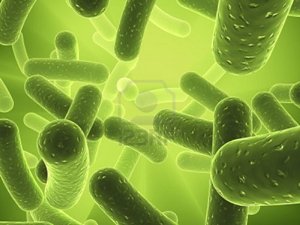
AllergiesProbiotics - Lactobacillus casei Results - Improved the inflammatory profile and immune function of both healthy and allergic subjects. Food AllergiesProbiotics - Lactobacillus rhamnosus Results - Downregulated the allergic responses to milk in milk-sensitive patients, but may aggravate the immune response in non-allergic subjects. Another study showed that L. rhamnosus may reduce bowel inflammation in infants with cow’s milk allergy and atopic dermatitis/eczema. Childhood AllergiesResults - Differences in gut flora in infants one month old have been associated with the development of different allergic-type responses during the first two years of life; including atopic dermatitis, eczema, wheeze, and allergic sensitization. Low bacterial diversity in infants one week old was correlated with an increased likelihood of diagnosis of atopic eczema after 18 months old. Environmental AllergiesProbiotics - Lactobacillus acidophilus, Bifidobacterium lactis, Lactobacillus gasseri and Lactobacillus coryniformis Results - Lactobacillus acidophilus and Bifidobacterium lactis improved the immune responses and respiratory symptoms of birch pollen allergies in children. Lactobacillus gasseri and Lactobacillus coryniformis also improved immune responses related to allergies in children. Preterm InfantsProbiotics - Bifidobacterium lactis Results - Preterm infants receiving antibiotics had improved weight gain when also given supplements of Bifidobacterium lactis. In addition, markers of gut inflammation were reduced while markers of immune system function were increased. Metabolic SyndromeProbiotics - Lactobacilli Results - Low levels of intestinal Lactobacilli were associated with markers for metabolic syndrome, inflammation and heart disease in elderly patients. ObesityResults - A relatively low proportion of Bacteroidetes in comparison with Firmicutes is associated with obesity, and this ratio increases proportionally with improved body weight. CholesterolProbiotics - Lactobacillus planatarum, Lactobacillus acidophilis and Bifidobacterium longum Results - Lactobacillus acidophilis and Bifidobacterium longum increased the HDL (“good”) cholesterol levels in subjects. Lactobacillus planatarum reduced LDL (“bad”) cholesterol and total cholesterol levels, and improved fibrinogen levels – a marker for systemic inflammation and risk factor for coronary heart disease. Blood PressureProbiotics - Lactobacillus helveticus with the yeast Saccharomyces cerevisiae (technically a yeast, not a bacteria) Results - Reduced blood pressure in elderly adults with high blood pressure. SmokersProbiotics - Lactobacillus planatarumResults - Reduced markers of oxidative stress and inflammation in smokers, and reduced blood pressure. Immune FunctionProbiotics - Bifidobacterium lactisResults - Improved immune function on healthy elderly adults. Liver InjuryCirrhosis, Fibrosis and Minimal Hepatic Encephalopathy (MHE)Probiotics - Pediacoccus pentoseceus, Leuconostoc mesenteroides, Lactobacillus paracasei subsp. Paracasei, and Lactobacillus plantarum Results - Used to manage minimal hepatic encephalopathy (MHE). Reduced the amount of harmful bacteria found in fecal samples, and improved measures of disease, including ammonia levels in the blood, bilirubin levels, and other circulating disease markers. Overall improvement in clinical status was also observed in studies with this combination of probiotic supplements. Alcohol-Related Liver DiseaseProbiotics - Bifidobacterium bifidum, Lactobacillus plantarum and Lactobacillus casei Shirota Results - Improved markers for liver inflammation and damage. Non-Alcoholic Fatty Liver Disease (NAFLD) and Non-Alcoholic Steatohepatitis (NASH)Results - Preliminary studies showed that a probiotic blend improved liver damage measures in patients with non-alcoholic steatohepatitis (NASH) or non-alcoholic fatty liver disease (NAFLD). Radiation-Induced EnteritisProbiotics - Lactobacillus rhamnosus, and VSL #3 (a brand-name probiotic supplement blend of Streptococcus thermophilus, Bifidobacterium breve, Bifidobacterium longum, Bifidobacterium infantis, Lactobacillus acidophilus, Lactobacillus plantarum, Lactobacillus paracasei, and Lactobacillus delbrueckii subsp. Bulgaricus). Results - Subjects receiving probiotics during radiation treatment showed improvements in diarrhea, and frequency of bowel movements. Patients given Lactobacillus rhamnosus during radiation treatment reported improved stool consistency and reduced number of bowel movements, less abdominal discomfort, and improved tolerance of chemotherapy doses. Read more about
how probiotics exert their effects on the body and how to choose a probiotic. Return to
Natural Health Articles by Topic
from
The Scientific Validation of Probiotic Supplements Reference Hakansson A, Molin G.
"Gut microbiota and inflammation."
Nutrients. 2011; 3(6): 637–682. |





